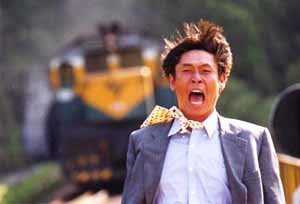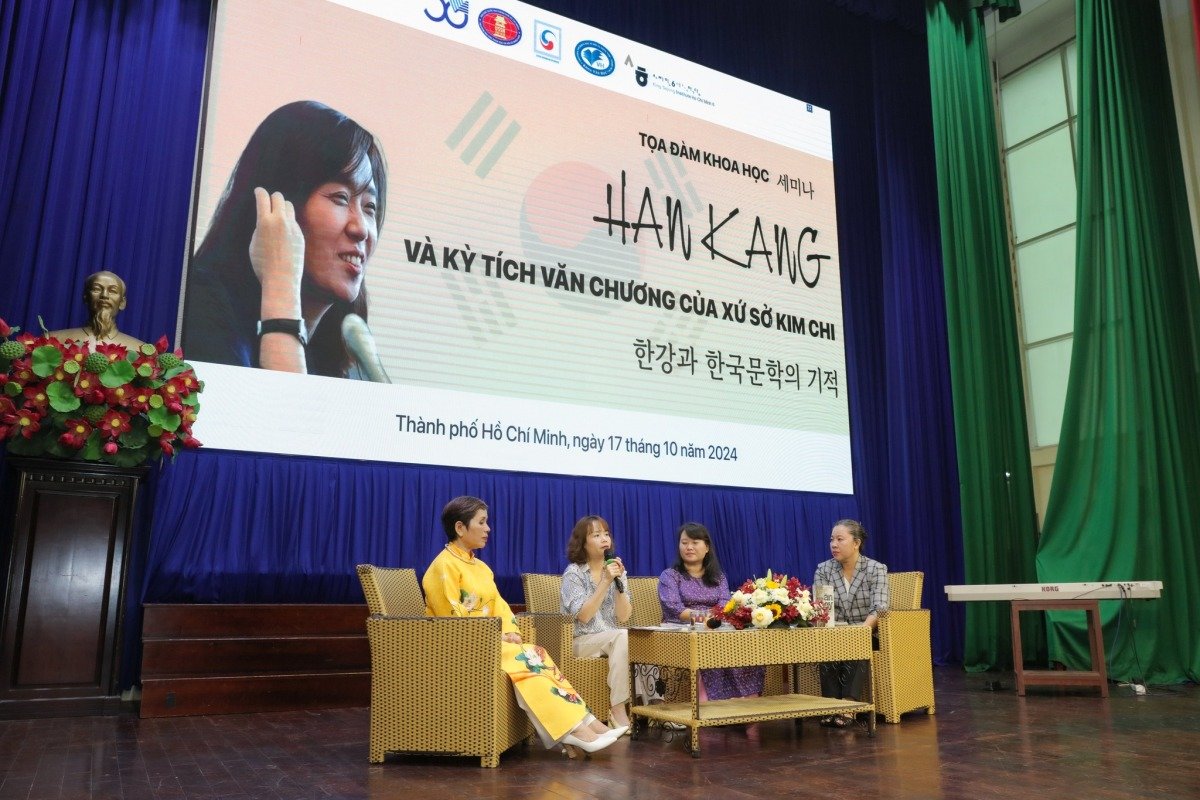[From NYT] `Peppermint Candy`: A life retreats from tragedy to happy beginnings
[From NYT] `Peppermint Candy`: A life retreats from tragedy to happy beginnings
Posted April. 02, 2001 17:42,

At the beginning of Lee Chang Dong`s "Peppermint Candy" a well-dressed man, possibly drunk and visibly distressed, stumbles into the reunion picnic of a group of men and women who had worked together in a factory 20 years before. They remember him from the old days, but he seems to have fallen out of touch. After alarming the group with his erratic behavior, the man, whose name is Yongho (Sol Kyung Gu), climbs a nearby railroad bridge and, as the train approaches, screams into the camera, "I want to go back."
The film, which will be shown tonight and tomorrow at the New Directors/New Films festival, grants Yongho`s wish, vaulting backward across 20 years of South Korean history to track his dissolution in reverse. The movie ends where it began: at the same riverbank in 1979, where the young factory workers, their lives still ahead of them, sing songs and prepare a picnic. Yongho, a tall, shy 20-year-old, shyly tells his sweetheart, Sunim (Moon So Ri), about his dreams of the future, none of which, we know by now, will come true.
The end has a quiet, heartbreaking power because the audience knows what the young man does not: that in the next two decades he will drift from youthful optimism into brutal, callous manhood and cynical, ultimately despairing middle age. The film`s seven sections are punctuated by images shot from the front of a moving train and shown in reverse motion, to suggest a life backing away from its destination toward its starting point. The chapters of Yongho`s life make sense only in relation to one another. The awkwardness of a chance encounter in a restaurant in the early 90`s is retroactively explained by a brutal police interrogation in the previous decade.
Yongho, who is the interrogator in that scene, is both thoroughly unsympathetic and pointedly ordinary, a man whose sins are egoism and conformity. Before failing as a husband and as a businessman he had some modest success as a police officer, beating up student dissidents and labor leaders. Later in life (and early in the film), he is consumed by longing for his Sunim, but unable either to express his love for her or to find any tenderness for Hongja (Kim Yeo Jin), the tea shop waitress he eventually marries.
That there is a political dimension to Yongho`s malaise is evident, but also, for one not intimately familiar with recent South Korean history, hard to grasp. The defining crisis of Yongho`s life comes during a tense military mobilization. Only by consulting the film`s press notes after the fact did I learn that the scene takes place during the 1980 Kwangju massacre, a watershed moment in South Korea`s long and difficult transition to democracy.
But if some of the force of Mr. Lee`s film may be lost on non-Korean audiences, the artful assurance of his directing and the brooding charisma of Mr. Sol`s performance will not be. The immediate source of Yongho`s anguish may lie in a specific series of national traumas, but the anguish itself — the feeling of a life gone incomprehensibly wrong, of events that overwhelm the capacity to understand them — is a painfully familiar modern malady.
Headline News
- Presidential Office signals possible offensive weapons aid to Ukraine
- N. Korea reportedly prepares military balloon attack with Russia
- Medical associations join bipartisan talks on expanding medical school quotas
- Former world No. 1 Ko Jin-young returns to LPGA
- Kakao unveils AI service ‘Kanana’ at 'if Kakao AI 2024'







